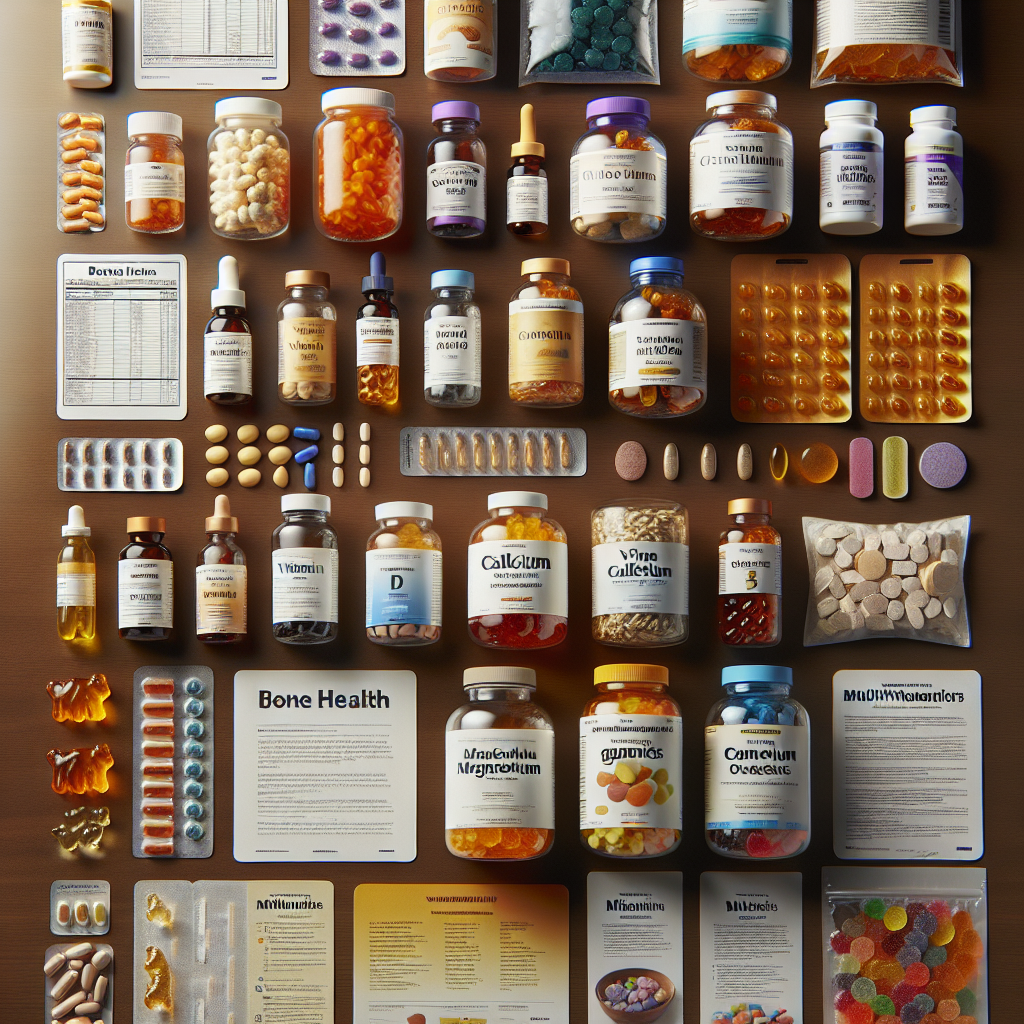Bone mineral density (BMD) is a critical measure of bone health, reflecting the strength and resilience of our skeletal system. It’s essential not only for physical stability and function but also for protecting against conditions such as osteoporosis and fractures. Fortunately, BMD can be positively influenced by dietary choices. This article will delve into the strategies that can help enhance bone mineral density through nutrition.
The Foundation of Bone Health
Before we explore specific dietary strategies, it’s important to understand the basics of bone health. Bones are living tissues that undergo constant remodeling, with old bone being resorbed and new bone being formed. This process is influenced by various factors, including nutrition, physical activity, and hormonal balance.
A diet that supports bone health is rich in key nutrients like calcium, vitamin D, magnesium, and phosphorus. These nutrients work in concert to ensure that the bones can rebuild and retain their density over time. For a more in-depth look at bone health and its importance, Avix Health provides detailed insights.
Calcium: The Cornerstone of Bone Density
Calcium is the most abundant mineral in the body and a critical component of bone tissue. To optimize BMD, a diet rich in calcium is paramount. Dairy products are well-known sources, but leafy greens, almonds, and fortified foods also offer substantial amounts.
For those interested in how to enhance calcium retention in bones, the article on Strategies for Enhancing Calcium Retention in Bones offers valuable guidance.
Vitamin D: The Sunshine Vitamin
Vitamin D plays a pivotal role in calcium absorption and bone health. It can be synthesized in the skin upon exposure to sunlight or obtained from foods like fatty fish, egg yolks, and fortified products. To maintain adequate vitamin D levels, consider both dietary intake and safe sun exposure.
The relationship between vitamin D and bone regeneration is complex, and those seeking more information can reference the article on The Role of Vitamin D in Bone Regeneration.
Magnesium and Phosphorus: Supporting Players
These minerals are vital for bone structure and strength. Magnesium is found in nuts, whole grains, and leafy greens, while phosphorus is present in dairy products, meat, and fish. Together, they support the mineralization process of bones.
Protein: A Dual-Edged Sword
Protein is essential for bone repair and growth. However, excessive protein intake, particularly from animal sources, can lead to calcium loss. Balancing protein with other nutrients is key to preventing this potential pitfall.
Collagen: The Bone Matrix
Collagen is the protein that forms the scaffolding of bone tissue, providing a framework for mineral deposition. Vitamin C is crucial for collagen synthesis, so including fruits and vegetables in your diet can support bone density.
The connection between collagen and bone health is further detailed in the article Understanding the Relationship Between Collagen and Bone Density.
Lifestyle and Dietary Synergy
Diet alone isn’t the sole factor in bone health. Incorporating weight-bearing exercises and maintaining a healthy weight are also essential. These lifestyle choices work together with a balanced diet to optimize BMD.
For an in-depth exploration of how exercise affects bone density, consider reading The Effects of Strength Training on Bone Density.
Specific Dietary Strategies for Improving BMD
- Balanced Meals – Ensure that each meal contains a mix of calcium, vitamin D, and protein to support bone health.
- Smart Supplementation – If dietary intake is insufficient, consider supplements for key nutrients like calcium and vitamin D, ensuring proper consultation with a healthcare provider.
- Limit Caffeine and Sodium – Both can contribute to calcium loss, so moderation is advised.
- Phytonutrient-Rich Foods – Consume a variety of fruits and vegetables for their bone-supporting antioxidants and minerals.
Niche Resources for Further Reading
- The National Osteoporosis Foundation offers guidelines on calcium and vitamin D requirements for different age groups.
- The International Osteoporosis Foundation’s Calcium Calculator can help track daily calcium intake.
- Research on the role of magnesium in bone health is available through the National Institutes of Health.
Conclusion
Improving bone mineral density is a multifaceted endeavor that hinges on a balanced diet rich in essential nutrients, coupled with a healthy lifestyle. By incorporating the strategies mentioned above and staying informed through reliable sources, individuals can make meaningful improvements to their bone health.
Remember, it’s never too late to start caring for your bones. Whether through small dietary tweaks or more significant lifestyle changes, every step counts towards building a stronger, healthier skeleton.



